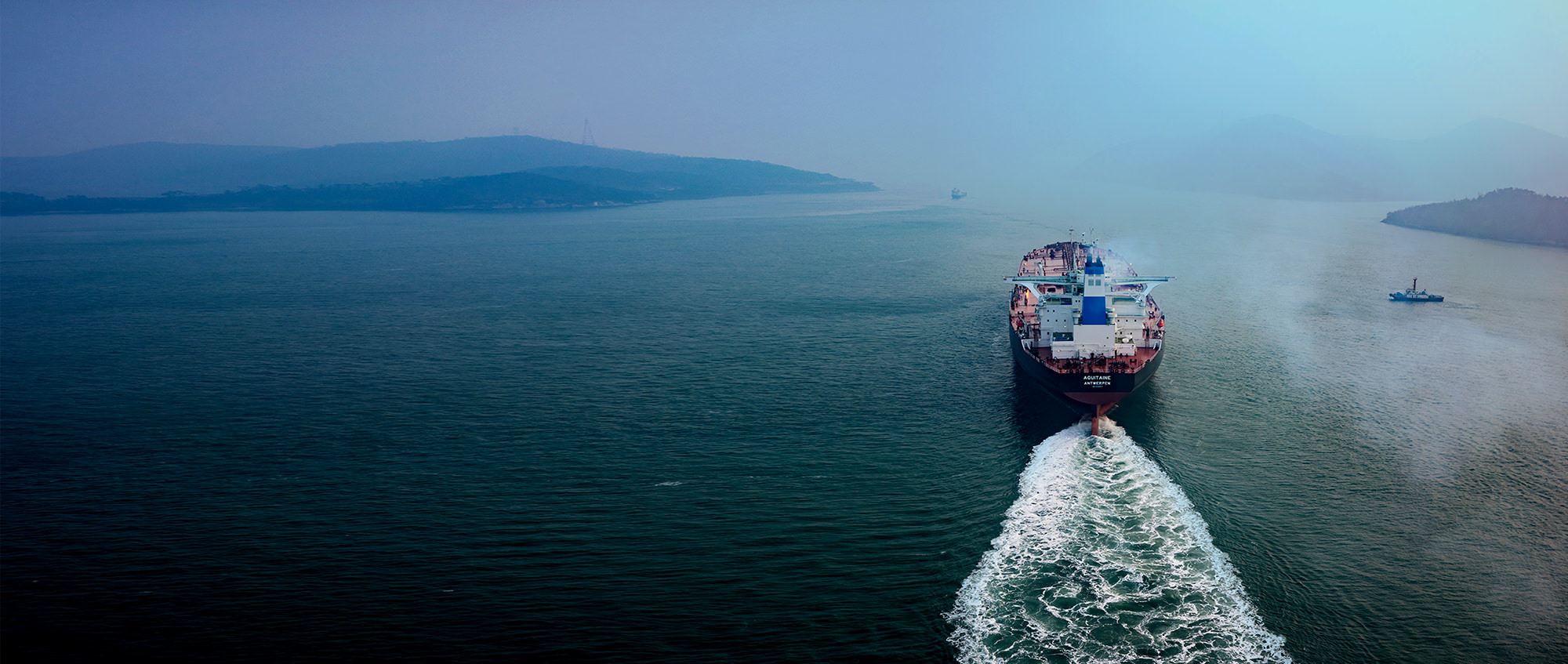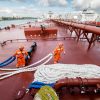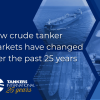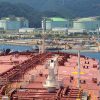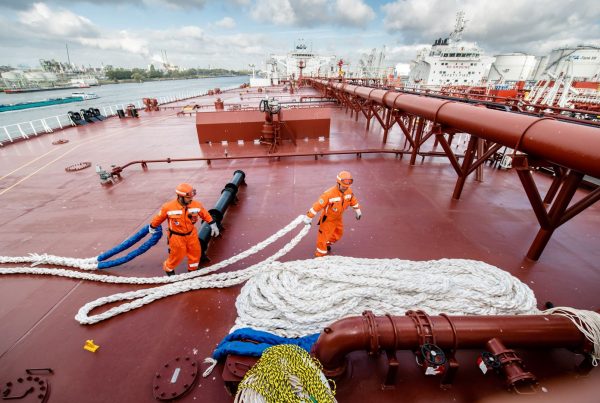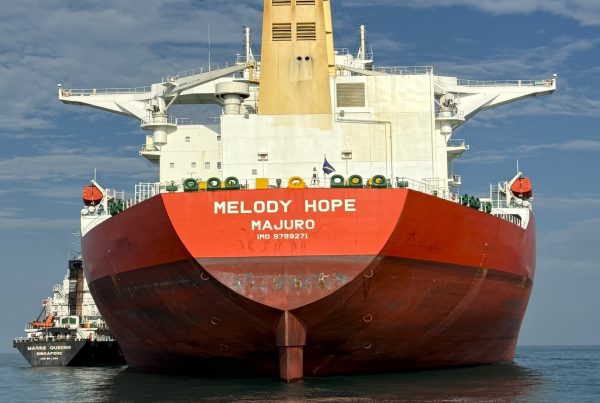Stephen Robinson, a seasoned bunker industry leader, recently joined Tankers International in a pivotal role. In this insight we delve into his vision for the future of fuel procurement, the challenges posed by decarbonisation, and how Tankers International plans to stay ahead of the curve.
What made you join Tankers International? And how do you see your previous experience translating to this role?
It feels like a full-circle moment in my career. After over 30 years in the bunker industry, starting from bunker trading and working through a variety of senior roles, I’ve developed a broad range of experience – from building physical bunker supply operations to managing large-scale Government joint ventures. I’ve had a relationship with Tankers International for 20 years supplying their vessels in key strategic ports and the TI Pool has always stood out as a well-run, highly professional operation.
This opportunity felt like a natural progression for me. I’ve always respected TI’s work and the people involved, and it’s a chance to apply my knowledge and network to something exciting. Personally, having spent over 20 years in Dubai, I was thinking about returning to the UK, but knew it would have to be for the right opportunity. This role not only allows me to apply my solid technical background in terms of physical bunker supply and fuel procurement , but also to leverage long, established relationships with many physical suppliers and industry players, which I know will be an advantage for Tankers International and align with our plans to develop new initiatives going forward.
Given the rising complexity of fuel procurement and the shift toward alternative fuels, how do you plan to leverage your established relationships with physical suppliers to support TI’s fuel strategy?
While the shift toward alternative fuels is important, I believe we need to first focus on optimising our existing approach to traditional fuels. The strategy will be to aggregate demand across the pool and use that scale to secure pricing advantages from suppliers. With the significant tonnage we handle, particularly in key markets like Singapore where I have strong relationships, we can be more creative with forward pricing and risk management, exploring opportunities beyond just looking for marginal savings from physical suppliers.
We also want to leverage these established relationships to negotiate more strategic partnerships, offering more value to the pool than just price. For instance, we can work with larger suppliers in regions like Singapore, Fujairah, and Rotterdam, ensuring we’re ahead of the curve when it comes to transitioning into new fuel technologies. Many of these suppliers are already preparing for alternative fuels, and by engaging them early, we can set up test runs and make sure our infrastructure and relationships are in place for when those volumes grow.
While alternative fuels are still relatively small in terms of the overall tonnage, we’re closely monitoring the regulatory landscape and preparing accordingly. However, my immediate focus will be on optimising the 800,000 tonnes we currently manage every year, ensuring we have the best supply strategy in place to serve both our pool members and future expansion.
In your view, how can TI gain a competitive advantage in the increasingly complex fuel landscape? What key areas should the bunker desk focus on to achieve this?
Our main competitive advantage lies in our significant buying power. In the bunkering industry, this is crucial. We have strong, well-established relationships, large credit lines, and a reputation for reliability and trust. Our partners know they can trust us to pay on time and handle substantial volumes. This trust and financial strength sets us apart, especially in a market where stability and competence are vital.
To build on this, the bunker desk will focus on leveraging our scale to negotiate better pricing, while ensuring that we maintain strong, long-term partnerships with suppliers. Our aim is to not only offer cost savings but also reliability and strategic insight, which are highly valued in the industry.
As the fuel landscape becomes more complex with the rise of alternative fuels, it will be essential for us to stay ahead of the curve by building relationships with suppliers who are already preparing for this shift. This proactive approach will position us well to offer our pool members a seamless transition into future fuel technologies.
By combining our buying power with a focus on reliability, trust, and forward-looking strategies, TI can solidify its position as a leader in the bunkering sector, both now and in the future.
As TI aims to support pool members through the decarbonisation challenge, what specific strategies or innovations do you think will be most effective in managing this transition?
Managing the decarbonisation transition will require a multifaceted approach, as it is an industry-wide issue.
Firstly, our significant fuel short in the traditional fuels arena, will transfer into the new alternative fuels markets. Our professional reputation will translate well into this new developing market. Whilst our alternative fuel volume requirements will be relatively small initially, we need to educate ourselves in these new markets now, and have already started detailed discussions with leading industry players. We aim to provide guidance and resources to help pool members navigate regulations related to emissions, ensuring full compliance with international standards.
Secondly, as the fuel landscape shifts, we need to build strategic partnerships with the suppliers who are leading the way in alternative fuel technologies. Some of our vessels have already made successful test runs with Biofuels and we are up to date with all the new regulations that will be implemented over the coming months. This proactive approach will help ensure that TI maintains a competitive advantage, ready to offer our members access to emerging fuels such as biofuels, LNG, and other low-emission alternatives as they become more widely available. Collaborating on test runs and pilot projects with these suppliers will also provide valuable insights into fuel performance and supply chain logistics.
Finally, transparency and education will be essential in supporting our pool members through this transition. By sharing knowledge on regulatory changes, fuel performance, and supply chain innovations, we can ensure that our members are well-prepared to meet both their operational needs and decarbonisation targets.
By combining our financial strength, strategic partnerships, and a forward-thinking approach, TI is well-positioned to lead the way in helping our pool members navigate the decarbonisation challenge effectively.
How do you see the future of fuel procurement evolving with the introduction of new ship technologies and stricter environmental regulations?
The future of fuel procurement is undoubtedly heading towards increased automation and digitalisation, though the shipping industry tends to adopt these changes at a slower pace, compared to other industries. There’s growing interest in online platforms that simplify fuel purchasing processes, but we’re still in the early stages of seeing a seamless, fully integrated system emerge.
At Tankers International, I’ve already noticed a significant shift towards automation, particularly in data management. While platforms for fuel procurement and blockchain-based fuel tracking are starting to appear, like the recent announcement of electronic BDNs in Singapore, the reality is that bunkering, especially with biofuels, remains a complex process. There’s a lot of blending involved, which introduces potential issues, so a human element will still be necessary for the foreseeable future.
As stricter environmental regulations and alternative fuels come into play, we’ll see more platforms emerging that help manage everything from fuel specs to historical performance data. However, we haven’t yet seen one perfect solution that covers all these aspects seamlessly. Until then, human expertise will remain critical in navigating these complexities. I believe that as these technologies grow and mature, there will be opportunities to integrate automation without losing the important personal relationships and trust that have always been key in the bunkering business.
Ultimately, the future will be a blend of digital tools and traditional human oversight, ensuring that both efficiency and reliability are maintained as we adapt to new regulations and fuel technologies.
Read our press release announcing Stephen’s appointment here.


